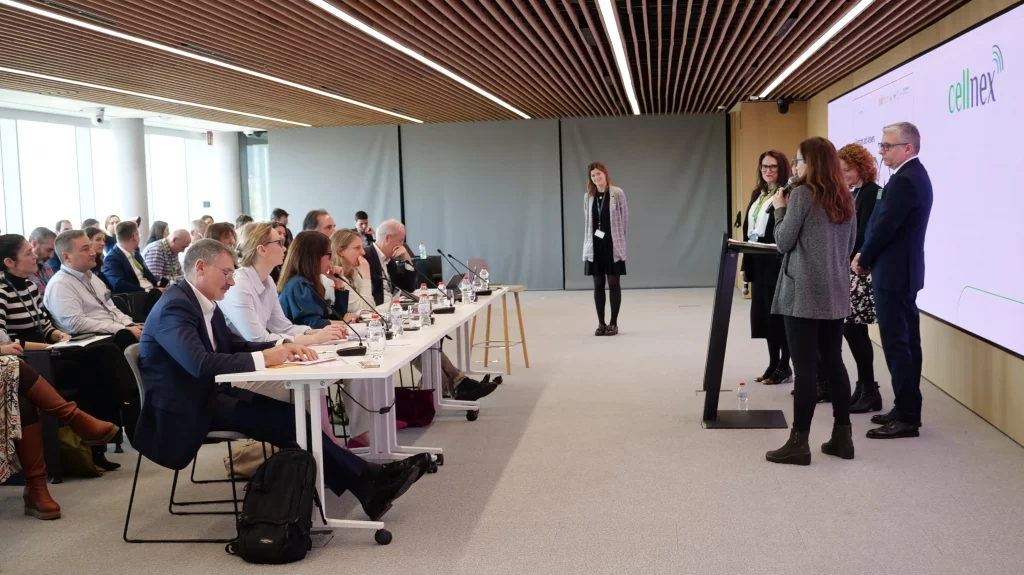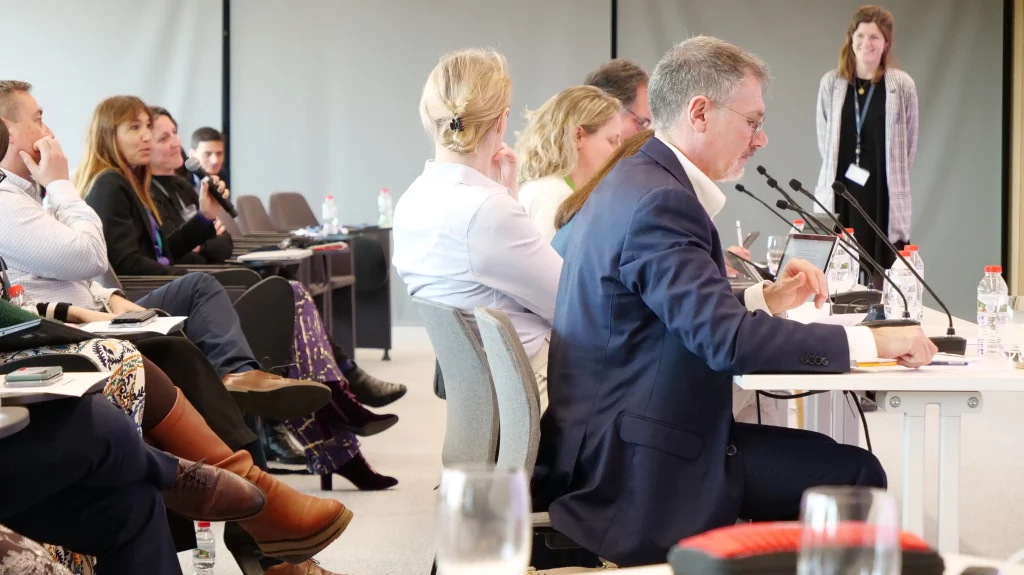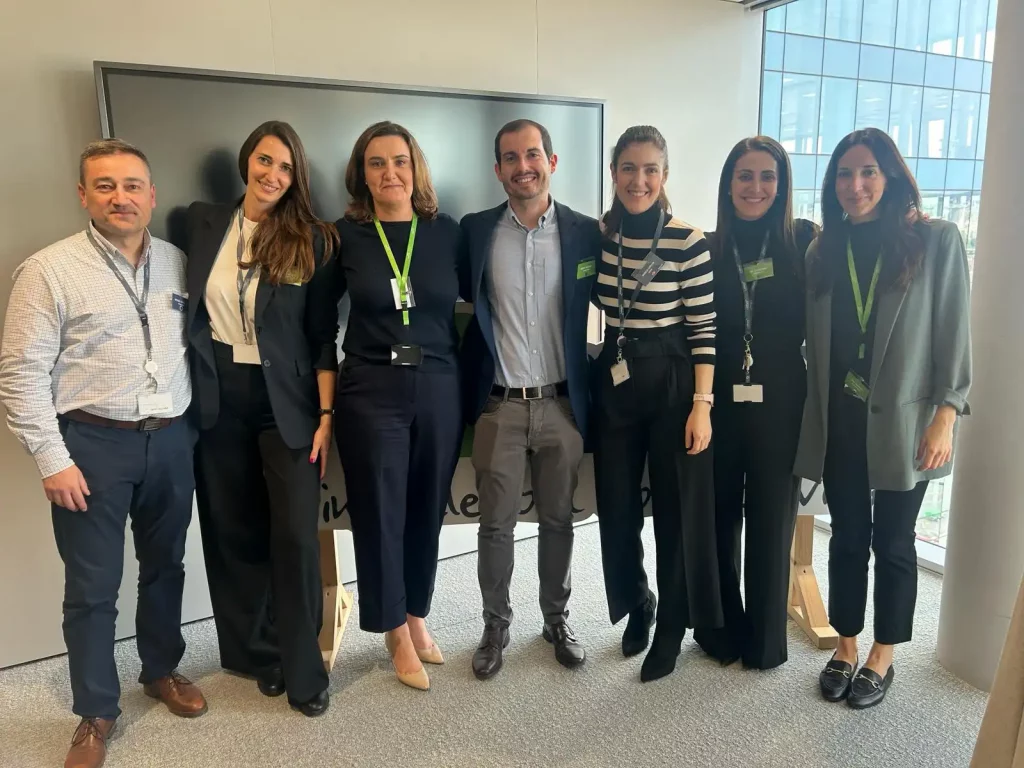Trends
Trends
SEP
04
2024
Global
Individual development, team success
This year, when the use of AI has hugely impacted society and our jobs, professionals working in human resources and talent have caught on to the new needs of their colleagues. “4 in 5 people want to learn more about how to use AI in their profession,” says the Workplace Learning Report 2024 from Linkedin Learning. But other professional development goals are also still top priority: aligning learning programmes with business objectives; improving employee skills; and creating a culture of learning.
In line with these goals, companies like Cellnex have an individual development strategy based on the 70:20:10 model. Professionals gain 70% of their knowledge from real work experiences; 20% from social interactions and feedback; and 10% from formal training and education. To promote the three learning methodologies, every year – and this is the fourth – Cellnex offers 20 of its professionals from different countries the chance to take part in a multidisciplinary and personalised programme in the shape of a Master of Business Administration (MBA). The Cellnex MBA, in collaboration with the EADA business school, aims to “foster the development of Cellnex professionals with potential and promote growth in abilities, skills and internal knowledge to prepare them for management and leadership roles,” says Nadine Framis, coordinator of the training programme at the People area at Cellnex.
Students receive online and also in-person training, attuned to the realities of the business, from experts outside and also inside the company who impart the best practices and strategies. At the same time, students in groups of five have to present a project, designed specifically to be implemented within the company. “Who better than Cellnex professionals themselves to present a project to improve the reality of the company, which, in turn, allows them to apply everything they’ve learned?” asks Framis. “Working on an internal company project is the perfect example of real work experience because it involves practical work that allows employees to apply their skills, solve real problems and learn by doing. It also includes social learning thanks to interactions with team members. It entails learning from feedback, guidance and experiences shared with others in a work environment.”
What all these projects have in common, and there are now 16 from the last three editions of the MBA and this one, is that there is a mentor to help the group achieve its objectives. The mentor is a person from the company with experience in the field chosen by each group. “As mentors we need to provide guidance, resources, information, contacts, experience, cross-cutting vision and focus on the objectives and key aspects of the project to help bring the proposed initiatives into land,” says Yolanda Romero, Head of Environment and Climate Change at Cellnex and mentor for a project in the third edition of the MBA. She adds, “The projects are a tool for innovation and continuous improvement, they foster cohesion and collaboration between departments and countries within the same company”.
Other mentors are taking on the role for the first time in this edition and are hugely looking forward to it. José Ángel Carmona, Country Operations Director at Cellnex, tells us: “It will undoubtedly be an enriching experience. Being able to share challenges, exchange knowledge and, why not, have a good time with a select group of colleagues united by talent, commitment, the desire to contribute and diversity is a priceless opportunity”. He adds, “Projects of this kind, well led, can be a hothouse for one of the lines of our own innovation and can stimulate or yield results in some cases as major inputs of value for our catalogue of services, both outside and inside the company”.
Many of these projects came into being as part of the Cellnex MBA but were then implemented in the daily operations of the company. For example, the Bring Your Own Device (BYOD) project grew from a security issue that was detected: employees have two mobile devices, one personal and the other for work, posing a risk to information security. The project analysed the internal situation, carried out a proof of concept and proposed that the company create a single BYOD policy for all the companies in the group which is now fully operational.
“The mentor is a kind of lighthouse for the team throughout the process. The team is engrossed in the project and its details and the sessions with the mentor serve to make sure they don’t lose their direction and purpose,” says Mireia Anton, Senior Process Project Manager at the People area at Cellnex. She adds, “It’s crucial to ensure that the purpose is aligned with the objectives we have as a company and we use our areas of expertise to facilitate and identify synergies to give the fullest meaning to the investment of time and talent that a project of these characteristics requires”.
This fourth edition of the MBA is not starting now in September, in fact it began in April, but it has reached the most important stage, working intensely on the project that the groups will present on 9 April to a panel that will assess them and decide if their ideas are innovative and interesting enough and can potentially be applied to the daily operations of the company. Let’s go, teams! And bear in mind that some of the mentors are a little bit jealous of you and would like to rewrite their past. Jose Angel Carmona: “I have just one complaint. I would love to start over again because I have no doubt that one of my personal goals would be to have the chance to do this Cellnex MBA with my team mates. Let’s get started!”



















